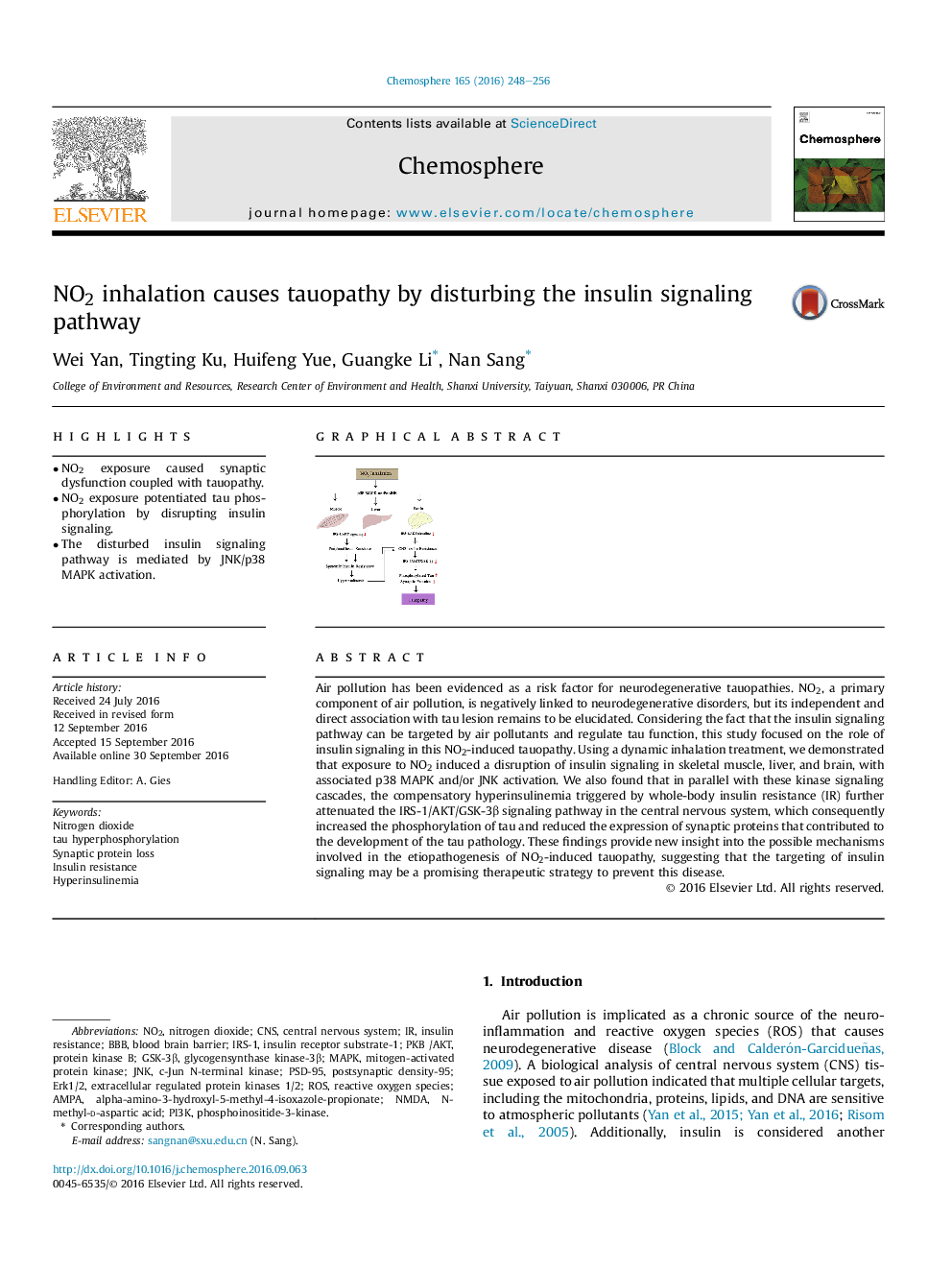| Article ID | Journal | Published Year | Pages | File Type |
|---|---|---|---|---|
| 4407319 | Chemosphere | 2016 | 9 Pages |
•NO2 exposure caused synaptic dysfunction coupled with tauopathy.•NO2 exposure potentiated tau phosphorylation by disrupting insulin signaling.•The disturbed insulin signaling pathway is mediated by JNK/p38 MAPK activation.
Air pollution has been evidenced as a risk factor for neurodegenerative tauopathies. NO2, a primary component of air pollution, is negatively linked to neurodegenerative disorders, but its independent and direct association with tau lesion remains to be elucidated. Considering the fact that the insulin signaling pathway can be targeted by air pollutants and regulate tau function, this study focused on the role of insulin signaling in this NO2-induced tauopathy. Using a dynamic inhalation treatment, we demonstrated that exposure to NO2 induced a disruption of insulin signaling in skeletal muscle, liver, and brain, with associated p38 MAPK and/or JNK activation. We also found that in parallel with these kinase signaling cascades, the compensatory hyperinsulinemia triggered by whole-body insulin resistance (IR) further attenuated the IRS-1/AKT/GSK-3β signaling pathway in the central nervous system, which consequently increased the phosphorylation of tau and reduced the expression of synaptic proteins that contributed to the development of the tau pathology. These findings provide new insight into the possible mechanisms involved in the etiopathogenesis of NO2-induced tauopathy, suggesting that the targeting of insulin signaling may be a promising therapeutic strategy to prevent this disease.
Graphical abstractFigure optionsDownload full-size imageDownload as PowerPoint slide
